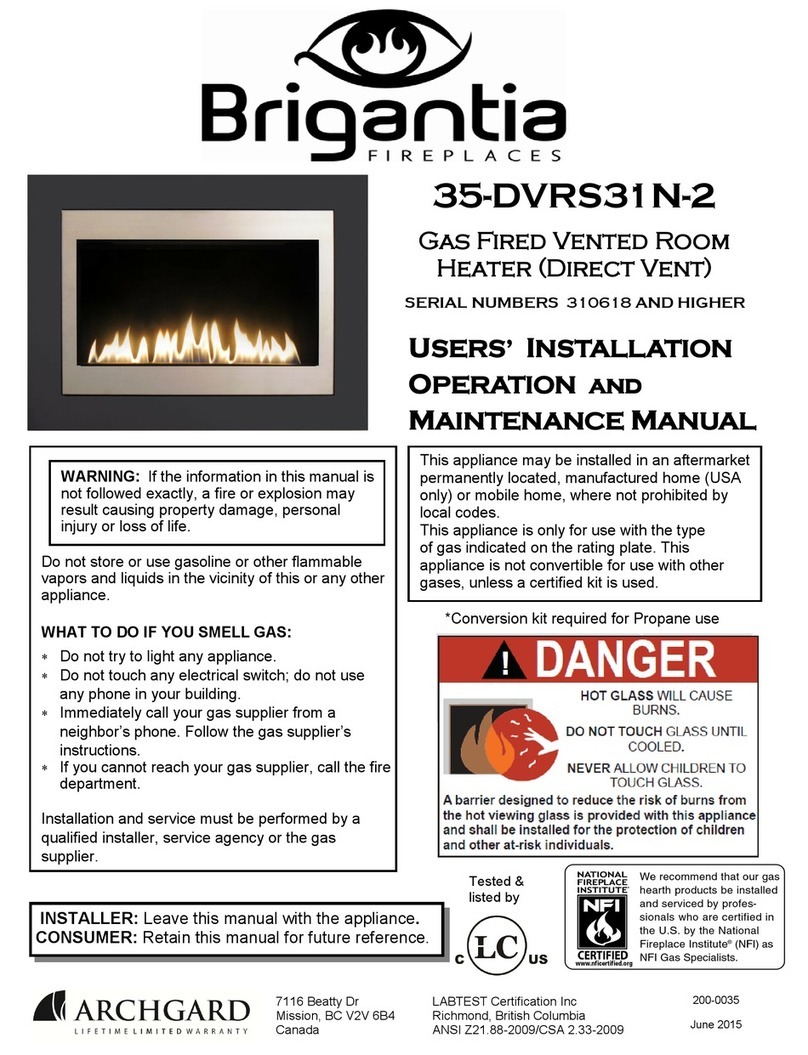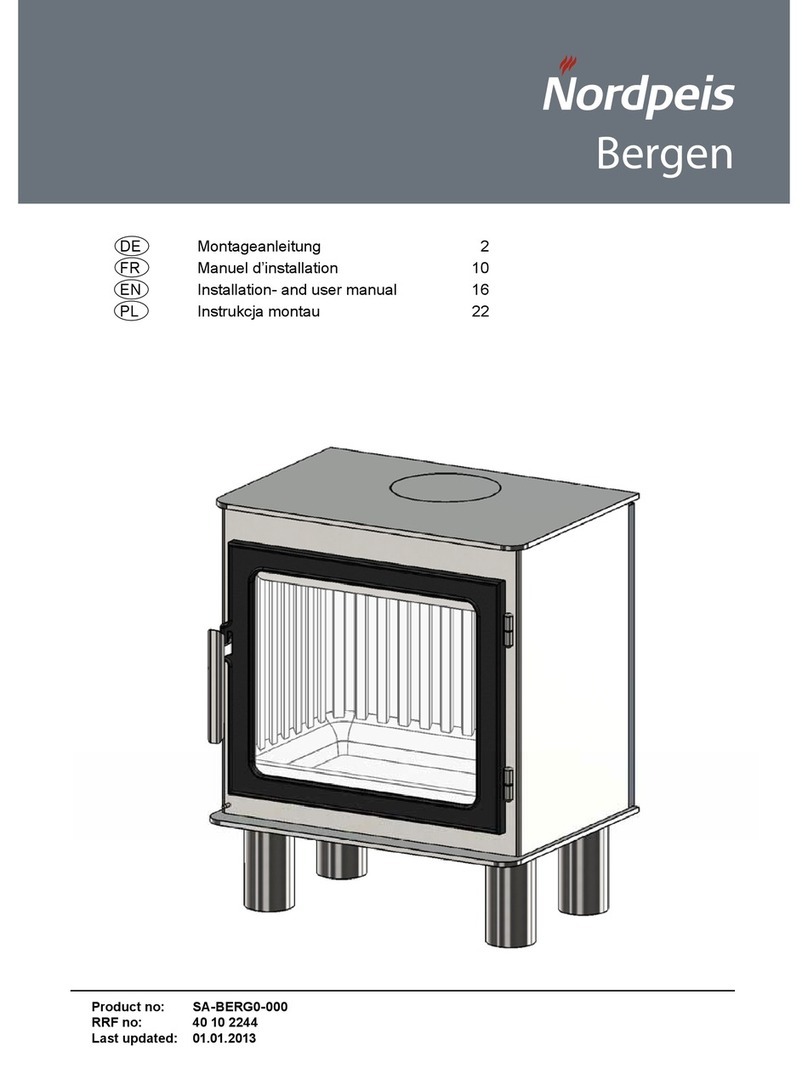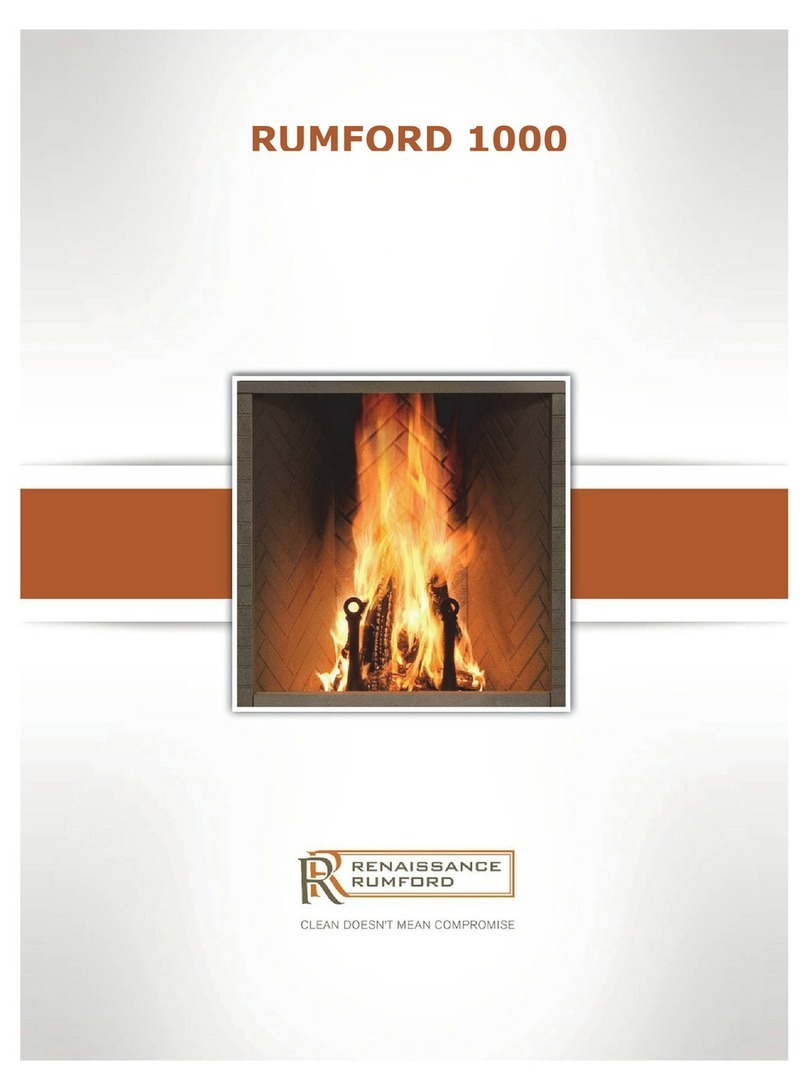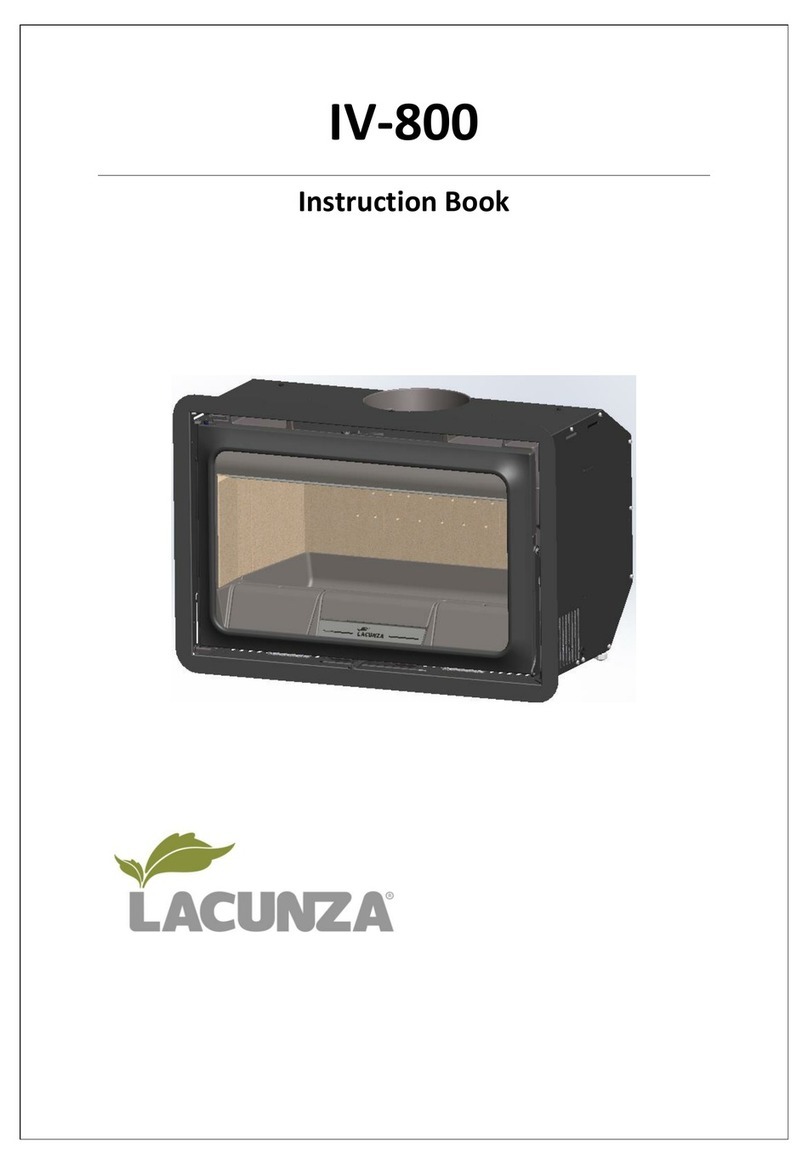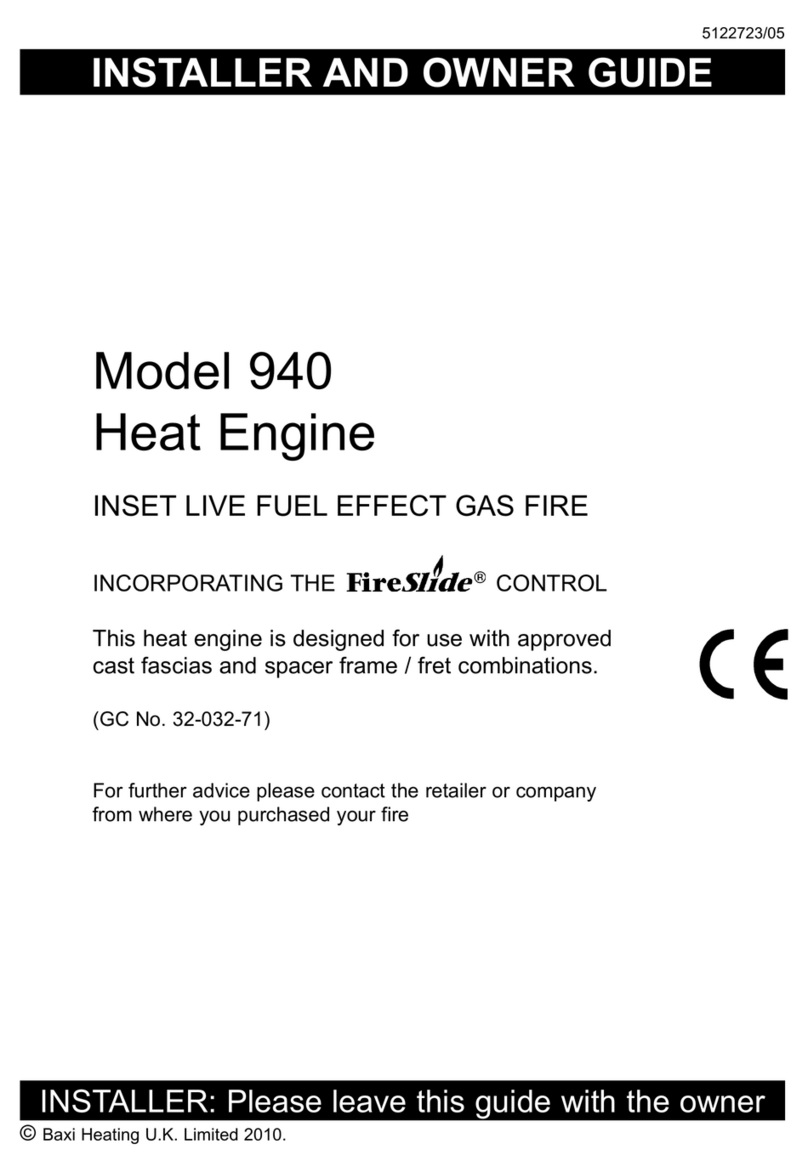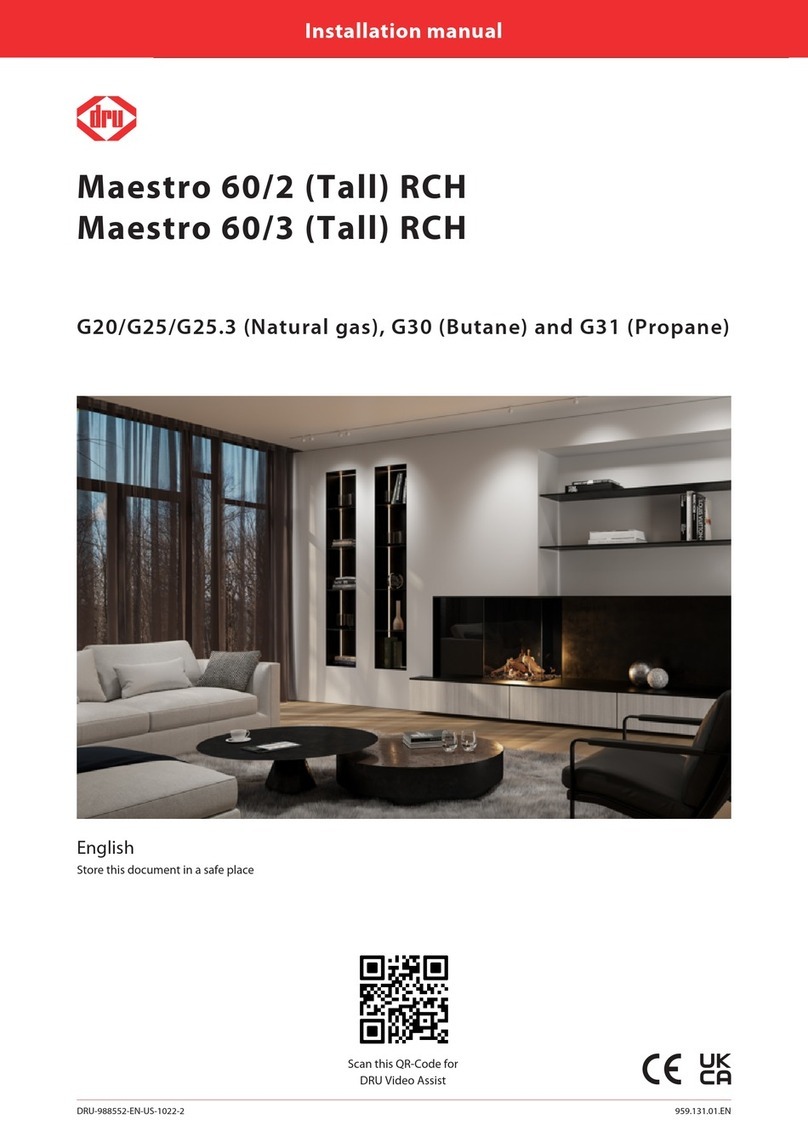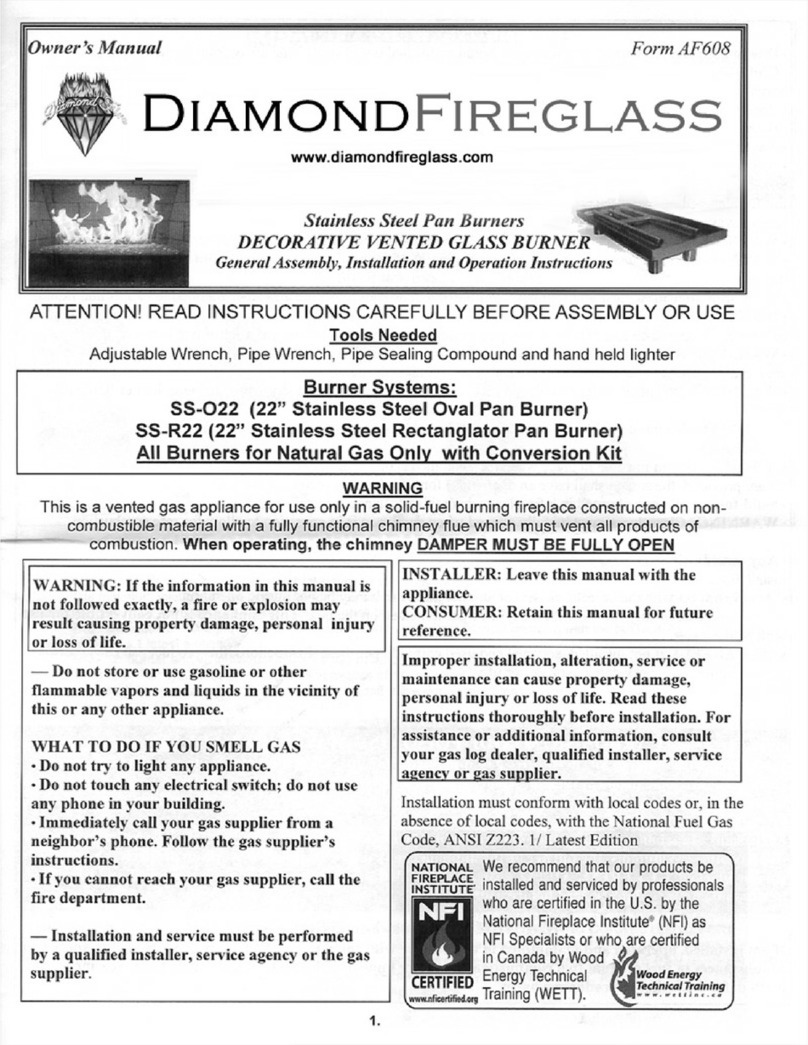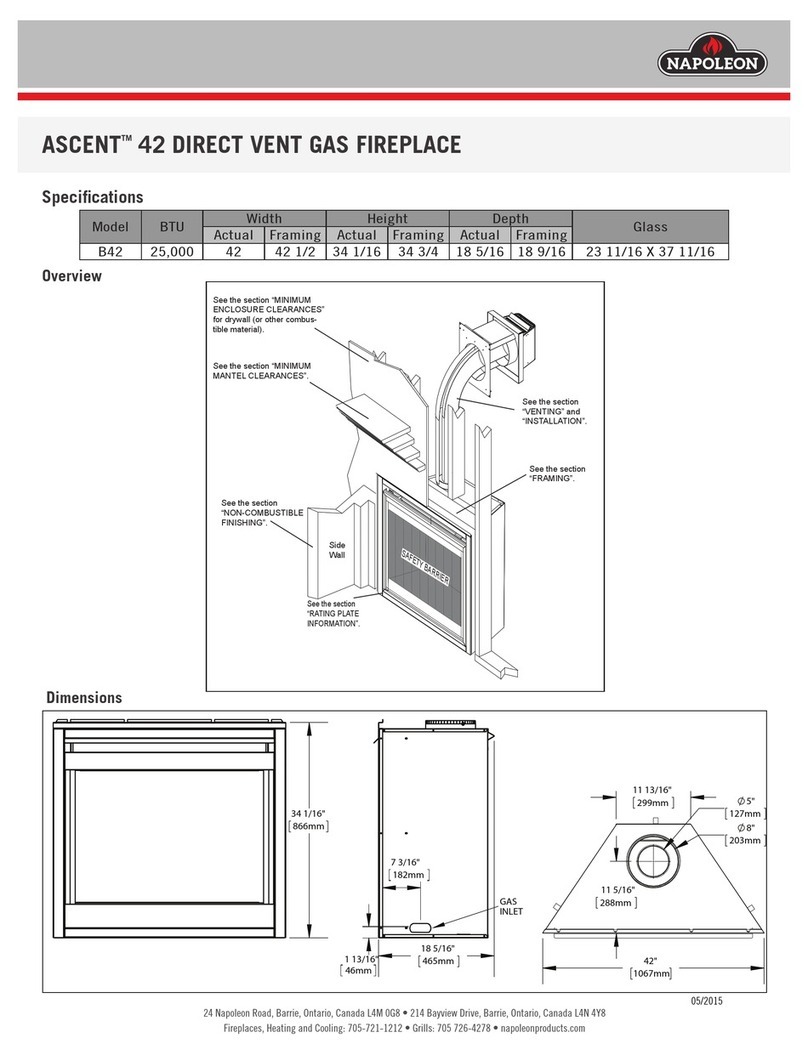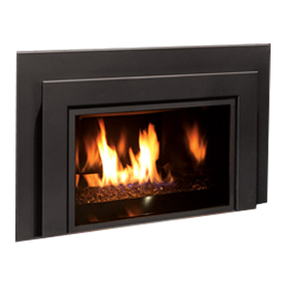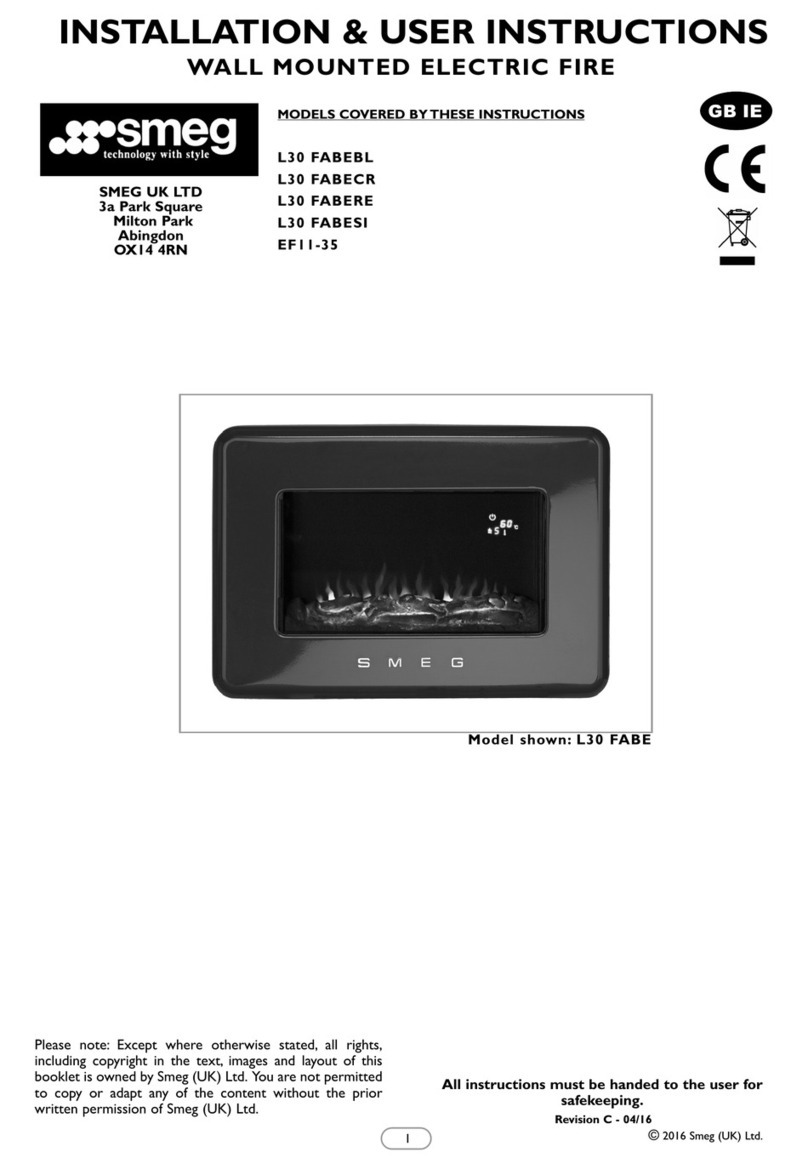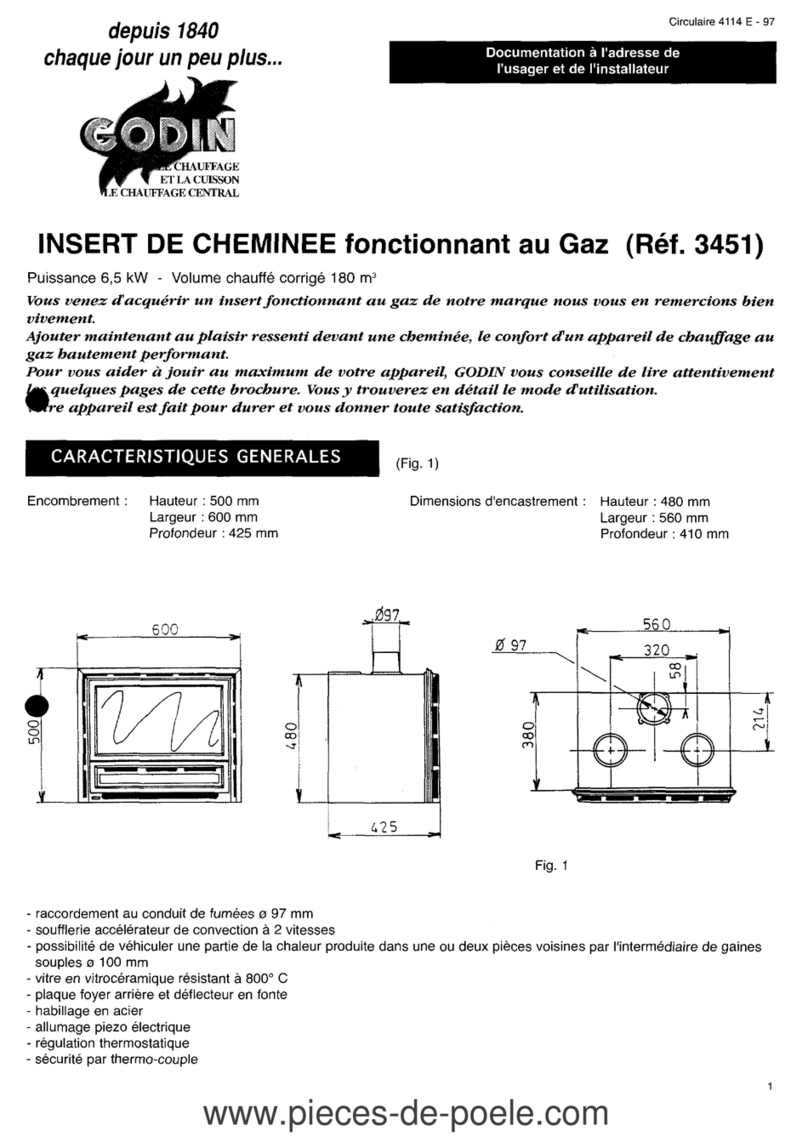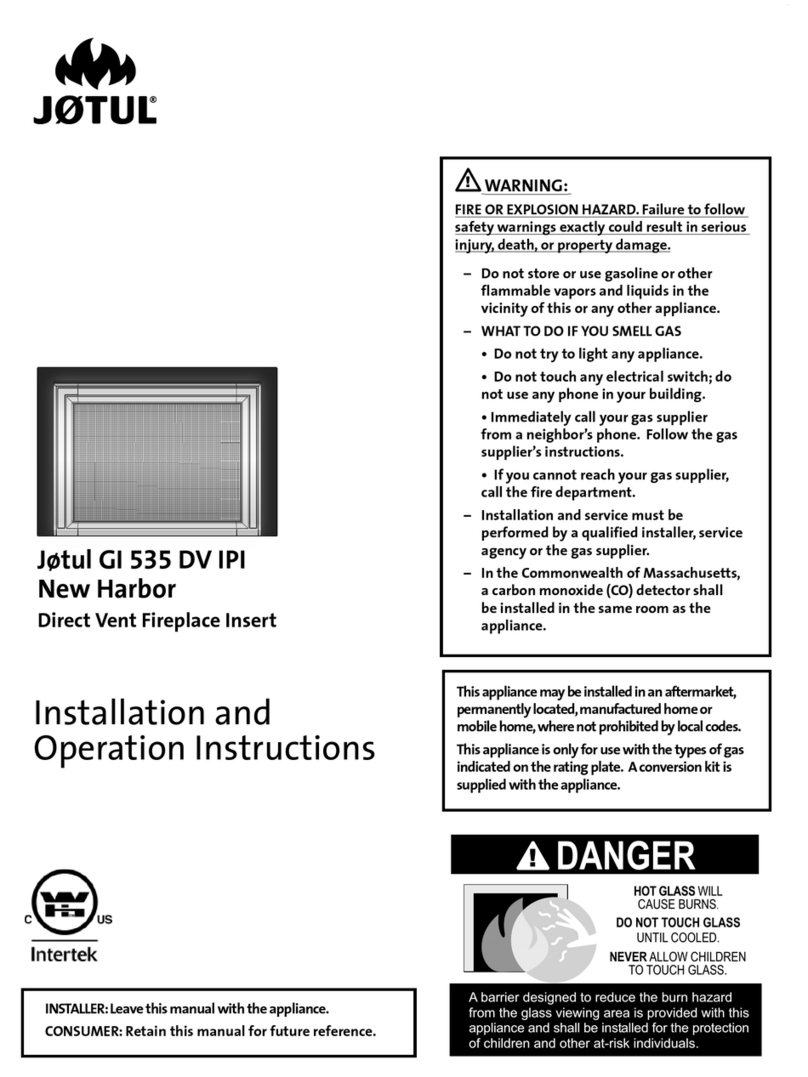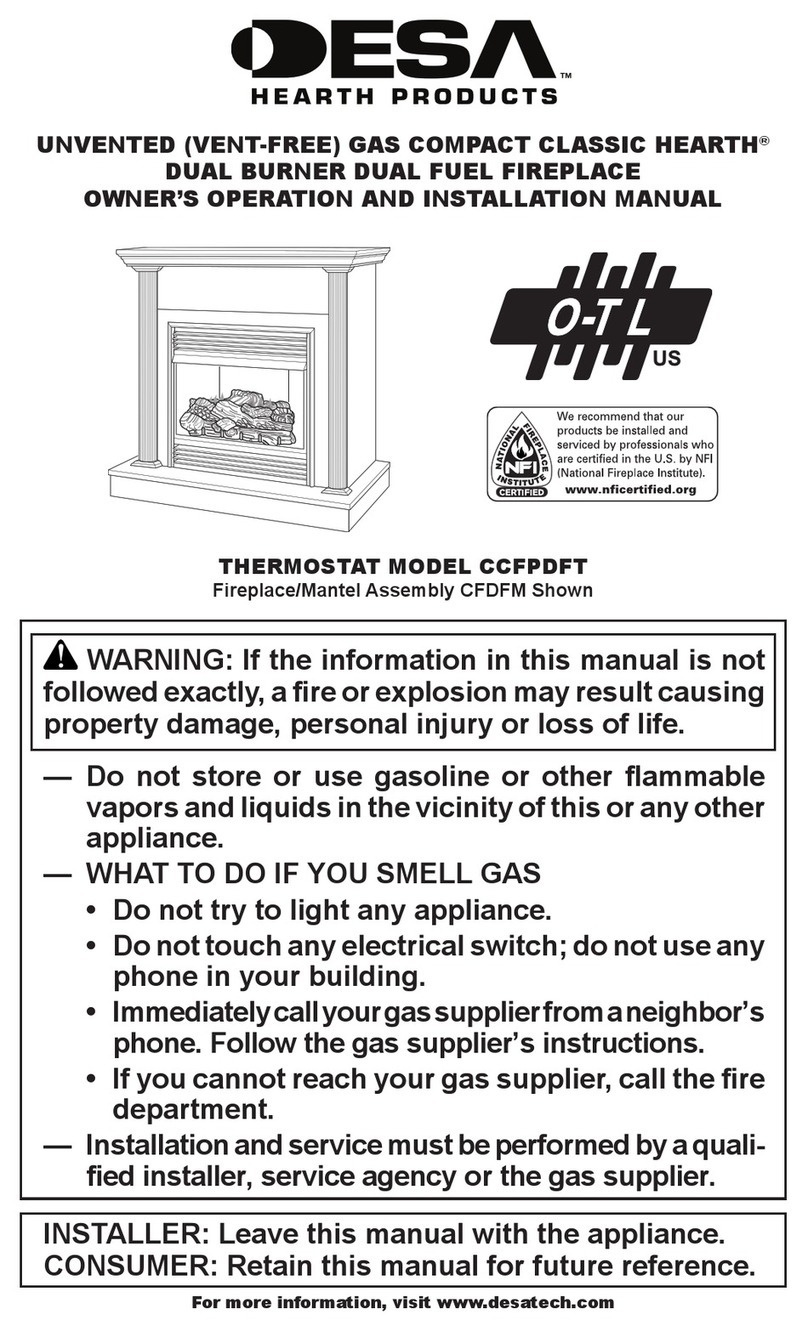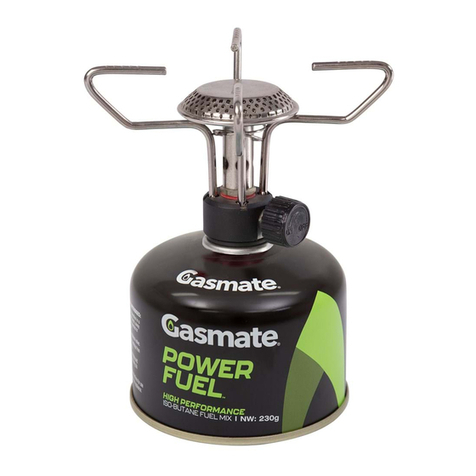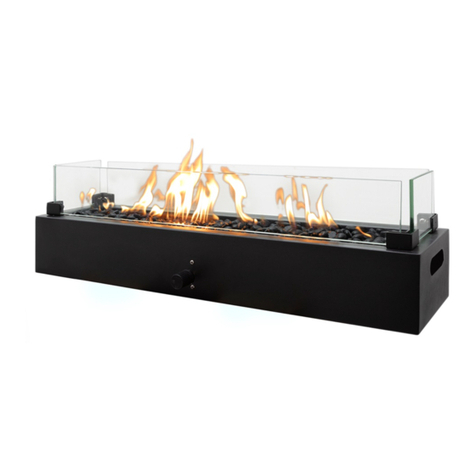
32
2. Adequate clearance around air openings into the
combustion chamber, clearances from combustible
materials, provisions for accessibility and for
combustion and ventilating air supply must be
maintained at all times when the appliance is
operating.
3. Proper clearance from combustible materials must
be maintained at all times. The minimum clearances
are as follows::
Minimum Clearance from Combustibles
Side 1220mm Rear 1220mm
DO NOT locate this appliance under any overhead
enclosure. Avoid using near or under overhanging trees
and shrubs. Combustible materials should never be
within 3m of the top of the appliance.
Combustible materials are considered to be wood,
compressed paper, plant fibres, plastic, plexiglas or
other materials capable of being ignited and burned.
Such materials shall be considered combustible even
though flame proofed, fire-retardant treated or plastered.
Additional clearance may be required for glass, painted
surfaces and other materials which may be damaged by
radiant or convection heat.
4. The appliance must be placed on a non-combustible
level and adequate footing and be readily accessible.
5. The gas manifold supply pressure must be regulated
at 2.75 kPa utilising an approved regulator (supplied
with appliance).
6. The appliance must be inspected before each use,
and at least annually by a qualified service person.
INSTALLATION, OPERATION & MAINTENANCE INSTRUCTIONS
IMPORTANT SAFETY RULES
This appliance must only be used in a well ventilated
area.
1. This appliance shall not be installed or used
indoors, in buildings, garages or any other
enclosed area.
2. ALWAYS place the appliance on a firm and level
surface.
3. DO NOT place articles on or against this
appliance.
4. DO NOT use or store flammable materials near
this appliance.
5. DO NOT use in windy conditions.
6. DO NOT burn solid fuels in the appliance. 7. This
is a decorative appliance only and any kind of
cooking is strictly forbidden.
8. Children and adults should be alerted to the
hazards of high surface temperatures, burns and
clothing ignition.
9. Children should be carefully supervised when they
are in the area of the appliance.
10.NEVER hang anything including clothes or other
flammable items on the appliance.
11.DO NOT use this appliance if any part has been
under water. Immediately call a qualified service
technician to inspect the appliance and to replace
any part of the control system and any gas
control that has been under water.
12.DO NOT operate this appliance unless it is fully
assembled.
13.DO NOT SPRAY AEROSOLS IN THE VICINITY
OF THIS APPLIANCE WHILE IT IS IN
OPERATION.
14.Before use: Remove any debris from within the
grate area.
15.Installation and repair should be done by a
qualified service person. The appliance must be
inspected before use and at least annually by a
qualified service person. More frequent cleaning
may be required as necessary. It is imperative
that control compartment, burners and circulating
air passages of the appliance and light be kept
clean.
Prior to assembling your appliance, the following must be
reviewed. Compliance with the following should result in
satisfactory appliance operation. This instruction manual
should be retained for future reference. The installation
must conform with local codes or authority having
jurisdiction.
1. The appliance is intended for residential and
nonresidential outdoor spaces. The installation must
conform with New Zealand Standard 5601 “Gas
Installations”.
a. The appliance area must be kept clear and free
of combustible materials, gasoline and other
flammable vapours and liquids.
b. Gas orifices and burner must be kept clear of
dirt and cobwebs. Flow of combustion and
ventilation air through the perforated portions of
the appliance must not be obstructed. Cleaning
with a soft brush before use and at least every six
months is recommended.
c. All gas connections should be checked for leaks
utilising a soap solution. Never use a flame for this
purpose.
d. The flame pattern at the emitter grid should
be visually checked whenever the appliance is
operated. If black soot is accumulating on the
lava rocks, the appliance should be turned off
immediately. The appliance should not be operated
again until the unit is serviced and or repaired.
e. Any cleaning agent used on the appliance should
be of a non-combustible and non-corrosive nature.
Warm soapy water is ideal. While washing the
appliance, be sure to keep the area around the
burner and pilot assembly dry at all times. If the gas
control is exposed to water in any way, do NOT try
to use it. The appliance should be regularly cleaned
and protected to reduce oxidation, ideally a cover
should be used when not in use.
